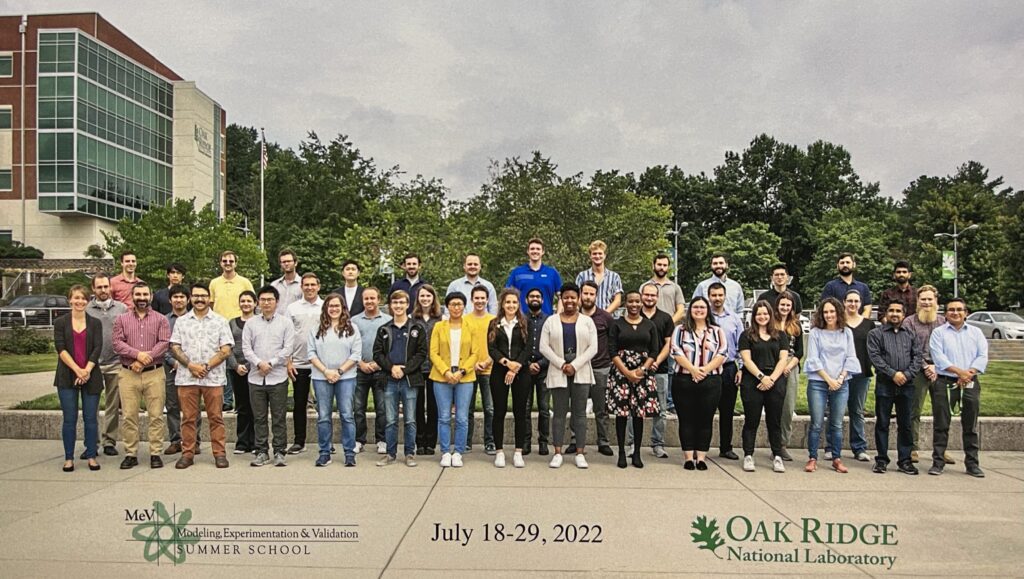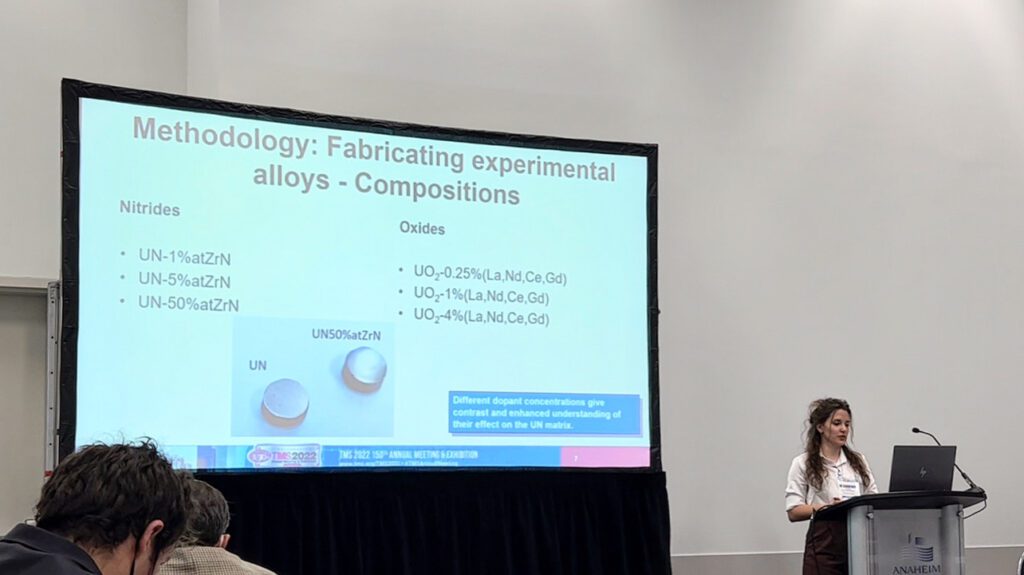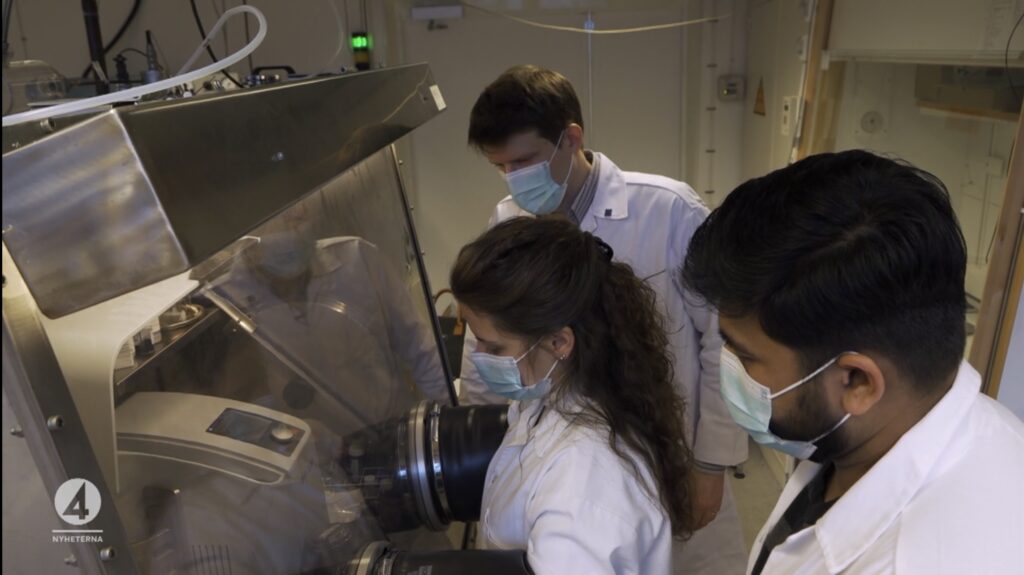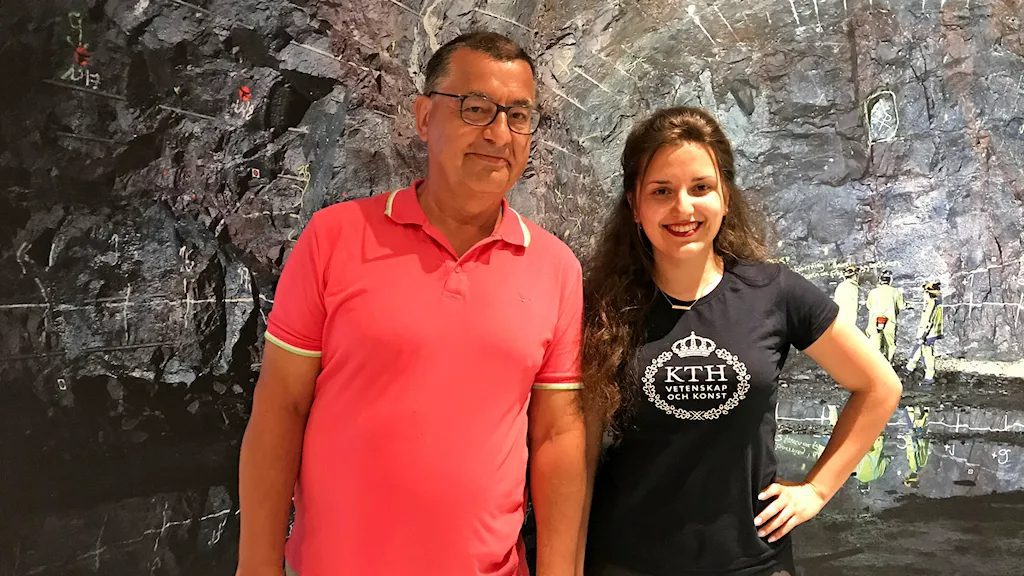- Home
-
- Works
Works
News

Elina Charatsidou participates in the Modeling, Experimentation and Validation MeV 2022 Summer School, at Oak Ridge National Laboratory, Knoxville, Tennessee
The MeV summer school compised two weeks of insightful full of lectures, panel discussions, lab and facility tours as well as networking! During the summer school the participates were working in teams, on various projects and presented their finding the last day. Our team fwon first place for the best presentation with the topic “Prediction of T91 Aluminised Cladding Failure due to Seismic Activity in an ELSY-LFR” following the CO-STAR format.
17-30 Jul 2022

Elina Charatsidou presents her work on nuclear materials during the TMS 2022 conference in Anaheim, California, USA
The presentation was part of the ”Advanced Characterization and Modeling of Nuclear Fuels: Microstructure, Thermo-physical Properties” section of the conference, Topic of the presentation: Thermal Conductivity Degradation by Solid Fission Products: Machine Learning Coupled with First Principles Model
28 Feb 2022
99 million for small lead-cooled nuclear reactors
Researchers and industry in Sweden are collaborating to realize the fourth generation of lead-cooled nuclear power plants. At KTH, tests and preparations are underway for the production of the reactors of the future.
– Now we are pleased with the news that the Swedish Energy Agency grants research and development grants of 99 million for the next step – the construction of an electric test facility in Oskarshamn, says KTH professor Pär Olsson who coordinates the research center Sunrise.
15 Feb 2022

The nuclear power of the future is predicted to be able to reuse nuclear fuel
The government is expected to announce the final repository of nuclear waste from our Swedish nuclear power plants. At the same time, research is being done on a new type of small reactor that can use today’s nuclear waste as fuel and shorten the time that the waste needs to be stored for 99,000 years. This is so-called uranium nitride, a future nuclear fuel that is being developed at KTH.

Unique nuclear power course attracts students from all over the world
36 students from all over the world are currently visiting Oskarshamn to learn more about the final repository of spent nuclear fuel.
“It’s very interesting to see how you work here because it’s not only important to learn about how to use nuclear power, but also to take responsibility for the waste that we create,” says student Elina Charatsidou from Greece, who is studying at KTH.
Her dream is that in the future it will be possible to create nuclear power that does not produce any waste whatsoever.
“You can always dream, theoretically we could minimise waste,” says Professor Waclaw Gudowski from KTH.
18 June 2019
